by Lisa Cooke | Nov 29, 2017 | 01 What's New, Ancestry, DNA
A new AncestryDNA opt-out option allows DNA test takers to not participate in DNA match lists: they do not receive matches or show up in others’ match lists. Your DNA Guide Diahan Southard weighs on in the implications for genealogy researchers who may worry about cousin matches they may miss.
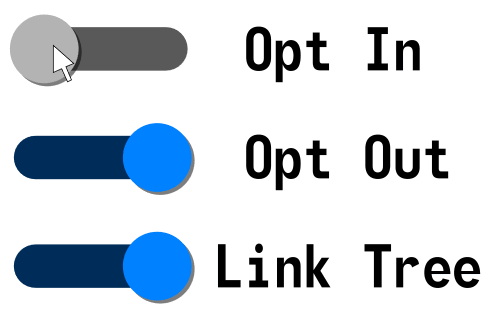
New AncestryDNA Opt-Out Policy
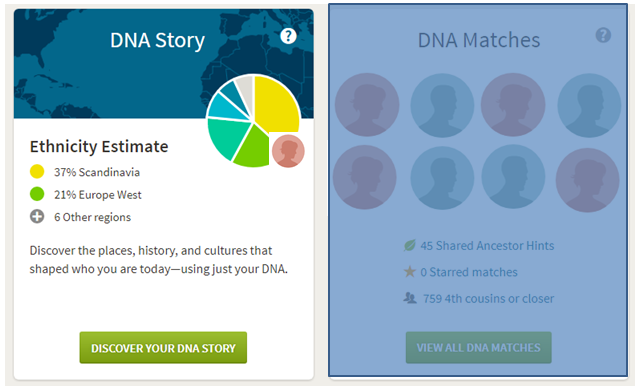 Ancestry.com recently announced an update to their privacy policy. Current and future AncestryDNA users now have the option to opt out of the DNA matching feature.
Ancestry.com recently announced an update to their privacy policy. Current and future AncestryDNA users now have the option to opt out of the DNA matching feature.
When you take a DNA test, you receive two different kinds of results from the DNA sample that you submit to your testing company:
- information about your ancestral origins and
- a list of your DNA cousins.
Opting out of matching essentially cuts the value of this product in half. You only get the ancestral origin information, and you forfeit access to your list of genetic matches. Opting out doesn’t just mean you can’t see them: it means that they can’t see you either.
AncestryDNA joins 23andMe in providing this option to their clients. You can look at this move as Ancestry’s response to an ever-expanding global audience, many of whom are not genealogists or are reluctant to have their DNA compared to others for a variety of reasons. It is important for them as a company to provide options for their clients to experience their product in a way that works best for them.
What the AncestryDNA Opt-Out Policy May Mean for You
 What does this new opt-out option mean for genealogists? Hopefully, not much will change. Ancestry reports that overwhelmingly, people are opting in.
What does this new opt-out option mean for genealogists? Hopefully, not much will change. Ancestry reports that overwhelmingly, people are opting in.
There has been quite a bit of push-back to this announcement, especially from the adoption community. DNA testing has been a tremendous source of information for those seeking out their biological relatives, and many fear that this change will limit access to quality DNA matches. But we will all still be able to do good genetic genealogy work, even as we are each allowed to choose whether to participate in the matching feature. To understand this better, it is important to see this issue from the other side, from the side of a person who might want to opt out. Here are two possible scenarios:
Scenario #1: Susan would really like to explore her heritage. She hasn’t tested before because she didn’t want to see cousin matches for a variety of personal reasons. But now she does test and opts-out. The community hasn’t lost anything because Susan would never have tested in the first place. But after exploring her ethnicity results and noticing membership in a couple of Genetic Communities, she begins to wonder more about her ancestors and decides to opt-in to matching, after all. In this scenario, the Opt-Out policy offers users a way to comfortably give DNA testing a try.
Scenario #2: Ryan heard about AncestryDNA while watching TV last year and ordered a kit. But then last week he heard about the ability to opt out, and went in and changed his account settings. So one day you could see Ryan on your match list, and the next you didn’t. We as a community would certainly see that as a loss. However, consider the circumstances that might have caused Ryan to hit that opt-out button. Perhaps Ryan had no idea how to use the match list, no interest in using it, and found it a bother to get correspondence from people. Perhaps Ryan found something unexpected, like that he wasn’t his father’s child, and he needed some time to deal with it. Maybe Ryan is under pressure from his sister, who didn’t want him to test in the first place (perhaps she knows something he doesn’t about their family tree, or she’s afraid of how any results and revelations might impact her). The short of it is: It doesn’t matter why Ryan opted out, it is his personal right to do so. Just as an adoptee has the right to seek out their heritage, others have the right to keep their family secrets to themselves. This scenario does support the idea that you should review your DNA matches frequently and record information about them in your own master match list, which I talk about in my quick reference guides, Organizing Your DNA Matches and Breaking Down Brick Walls with DNA. By promptly recording matching results, you will have them to work with even if the tester decides later on down the road to opt out.
As a genealogy community, we can educate others about the value of the match list, while at the same time cautioning them that unexpected connections may appear. So in everyday conversations, share your own experiences—whatever these may be. Maybe it was affirming for you to see that the dad you grew up knowing is indeed your biological father. Perhaps you can share a story about the power of using a list of fourth cousins to discover information about your third-great-grandfather. Maybe you’ve discovered a new connection—and maybe that connection isn’t yet comfortable or fully explained, but you’re glad to know about it.
Learn More about AncestryDNA Testing
Get the most out of your AncestryDNA testing experience with my quick reference guides! I recommend:
- A Guide to AncestryDNA How to find your best DNA matches, interpret ethnicity results, link your tree, understand relationship ranges and DNA Circles, and work with Shaky Leaf hints.
- Autosomal DNA for the Genealogist. What autosomal test can tell you, who can be tested, how to interpret your ethnicity results, and more.
- Organizing Your DNA Matches. How to keep track of your matches and apply what you learn from them to your family history.
- Breaking Down Brick Walls with DNA. What to do next to maximize the power of DNA testing in genealogy. Take your DNA testing experience to the next level and make new discoveries about your ancestors and heritage!
Disclosure: This article contains affiliate links and Genealogy Gems will be compensated if you make a purchase after clicking on these links (at no additional cost to you). Thank you for supporting Genealogy Gems!
by | Dec 28, 2012 | British, Canadian, Records & databases, Who Do You Think You Are?

In December the genealogy records website Findmypast.com released new and exclusive historical records that highlight significant life events of the past. According to the the company, more than 40 million new records are included. Here are all the details from their press release:
LOS ANGELES (Dec. 17, 2012) – …“The number of records released offers findmypast.com’s users a staggering amount of new data, ranging from exclusive United Kingdom records from as early as 1790 to modern-day vital records from the United States that will add new layers of information for researchers,” said D. Joshua Taylor, lead genealogist for findmypast.com, “Findmypast.com is constantly expanding our collections with thousands of new records being added each month. Moving into 2013, we look forward to increasing our record offerings to include rarer, more exclusive materials, in our dedication to provide the most comprehensive family history resource available.”
Many of the new records that can only be accessed through findmypast.com offer a unique glimpse into history. The Harold Gillies Plastic Surgery set, dating back to World War I, contains fascinating records of some of the world’s first restorative plastic surgery, while the White Star Line Officers’ Books include officer records from the Titanic.
Newly added employment and institutional records including the records of the Merchant Navy Seaman (aka the Merchant Marines) provide unique color to family history that can’t be created from just names and dates. Other record sets include probates and wills, such as the Cheshire Wills and Probates, which often offer crucial clues to link North American family trees back to the United Kingdom.
The full set of exclusive records recently released by findmypast.com includes:
United Kingdom Court & Probate
- · Cheshire Wills and Probate
- · Suffolk Beneficiary Index
United Kingdom Education & Work
- · Cheshire Workhouse Records, Admissions and Discharges
- · Cheshire Workhouse Records, Religious Creeds
- · Derbyshire Workhouse Records
- · Match Workers Strike
- · White Star Line Officers’ Books
United Kingdom Military
- · Army List, 1787
- · Army List, 1798
- · British Officers taken Prisoners of War, 1914-1918
- · De Ruvigny’s Roll of Honor
- · Grenadier Guards, 1656
- · Harold Gillies Plastic Surgery – WWI
- · Harts Army List, 1840
- · Harts Army List, 1888
- · Manchester Employee’s Roll of Honor, 1914-1916
- · Merchant Navy Seamen (aka Merchant Marines)
- · Napoleonic War Records, 1775-1817
- · WWI Naval Casualties
- · Paddington Rifles
- · Prisoners of War, 1939-1945 British Navy & Air Force Officers
- · Prisoners of War, 1939-1945 Officers of Empire serving in British Army
- · Royal Hospital, Chelsea: documents of soldiers awarded deferred pensions, 1838-1896 (WO 131)
- · Royal Hospital, Chelsea: pensioners’ discharge documents 1760-1887, (WO 121)
- · Royal Hospital, Chelsea: pensioners’ discharge documents, foreign regiments, 1816-1817 (WO 122)
- · Royal Hospital, Kilmainham: pensioners’ discharge documents, 1773-1822 (known as WO 119 at the National Archives)
- · Royal Navy Officers Medal Roll, 1914-1920
- · War Office: Imperial Yeomanry, soldiers’ documents, South African War, 1899-1902 (WO 128)
- · WWII POWs – British held in German Territories
In addition to the exclusive records sets, this recent release includes additional records from the United States, Australia and Ireland. An update to the World War I Draft Cards collection provides registrations and actual signatures of more than 11 million young Americans from the beginning of the twentieth century.
Additional records released include:
United States Military
- · Japanese-Americans Relocated during WWII
- · Korean War Casualty File
- · Korean War Deaths
- · Korean War Prisoners of War
- · Korean War Prisoners of War (Repatriated)
- · U.S. Army Casualties, 1961-1981
- · Vietnam Casualties Returned Alive
- · Vietnam War Casualties
- · Vietnam War Deaths
- · WWI Draft Cards
- · WWII Prisoners of War
Life Events
UNITED STATES:
- · Kentucky Birth Records, 1911-2007
- · Kentucky Death Records Index, 1911-1999
- · Kentucky Marriage Records Index, 1973-1999
- · Texas Divorce Records Index, 1968-2010
- · Texas Marriage Records, 1968-2010
AUSTRALIA
- · Northern Territory Anglican Baptisms and Confirmations, 1900-1947
- · Northern Territory Anglican Burials, 1900-1968
- · Northern Territory Anglican Marriages, 1902-1953
IRELAND
- · Irish Catholic Church Directories, 1836-37
Census Land and Surveys
AUSTRALIA
- · Northern Territory Census, 1881-1921
- · Northern Territory Electoral Rolls, 1895-1940
Institutions & Organizations
AUSTRALIA
- · Northern Territory Parliamentary Index, 1884-1890
Newspapers, Directories & Social History
AUSTRALIA
- · Northern Territory Section of the Queensland Post Office Directory, 1920-1921
by Lisa Cooke | Jul 2, 2019 | 01 What's New, Records & databases |
Genealogical records come in all shapes and sizes and this week’s records round up even includes round records! Keep reading because you never know what you’ll find.
Photographs at Indiana Album
I love this website simply for the tag line Historic Photographs from the attic to the Web! We all have a bit of other families’ genealogy in our attics, closets and scrapbooks, and Indiana Album is a nonprofit organization that want to make it accessible. They encourage Hoosiers (and of course descendants of Hoosiers) to loan them their photos and documents. The group then digitizes, catalogs and shares them in a database on their website. Head here to search for the names, places and other keywords relating to your family. I’m finding gems like the one below.

Internet Archive’s Great 78 Project
Here’s a free online collection that is adding tons of new melodic content!
I’m amazed how often I run across music references in my genealogical research, particularly when reviewing the diaries, letters and other records of my late 19th century and early 20th century relatives.
When I was in my twenties I wrote my Grandfather often and asked him questions like “Do you remember any favorite songs from when you were a young man?” His answer included:
As you can see from the linked titles above (click them to listen for yourself), I found every single one of them at the Internet Archive’s Great 78 Project. This is a phenomenal free online collection of digitized recordings made accessible to everyone.
The good news is that the project, which currently boasts over 200,000 recordings, just received funding to preserve another 250,000 sides of 78 rpm records. That means they need records. So, check your basement, closets and attic and consider donating your 78s to the Internet Archive’s Great 78 Project for digitization and physical preservation. You can donate your 78rpm Records to the Internet Archive’s Great 78 Project here.

No Wonder (That I Love You) Gene Austin, 1925
UK & Iceland Records at Findmypast
There are over 6.4 million new records and newspaper articles available to search and explore this Findmypast Friday including over 264,000 new and exclusive parish records that have been digitised and made available online for the first time in association with the Lancashire Archives.
Lancashire Baptisms
Over 31,000 additional records are now available to search amongst out collection of Lancashire Baptisms. The new additions cover the parishes of:
- Edge Hill, St Nathaniel -1869 to 1918
- Liverpool, St John – 1785 to 1898
- Liverpool, St Silas, Pembroke Place – 1841 to 1918
- Liverpool, St Stephen the Martyr – 1851 to 1918
- Newburgh, Christ Church – 1860 to 1917
- Seaforth, St Thomas – 1839 to 1918
- Stoneycroft, St Paul – 1916 to 1918
- Toxteth Park, St Bede – 1882 to 1918
These records include both transcripts and images of the original documents. Each result will reveal when and where your ancestor’s baptism took place, the names of their parent’s and father’s occupation.
Lancashire Marriages & Banns
A further 179,000 records have also been added to our collection of Lancashire Banns & Marriages. These new marriage registers add coverage for a selection of new Liverpool parishes, including:
- Edge Hill, St Nathaniel – 1871 to 1943
- Everton, Emmanuel – 1835 to 1943
- Liverpool, St John – 1785 to 1898
- Liverpool, St Stephenn the Martyr – 1852 to 1943
- Seaforth, St Thomas – 1870 to 1943
- Stoneycroft, St Paul – 1916 to 1943
- Toxteth Park, St Bede – 1887 to 1943
Learn when, where and to whom your ancestor was married, as well as the happy couple’s ages, occupations, marital status, residences, parent’s names and father’s occupation.
Lancashire Burials
Over 54,000 new records from the central Liverpool Parish of St John. These new records span the years 1767 to 1883 and will allow you to discover when your Liverpool ancestors were laid to rest.
The transcripts and images within this collection will enable you to discover when your ancestor died, their occupation, the date and location of their burial, as well as their age at death.
United States Obituary Notices
A whopping 5.7 million new records are now available to search within our collection of United States Obituary Notices.
These records, obtained from the tributes.com and currentobituary.com websites will enable you to discover your ancestor’s name, birth and death years as well as the original obituary text. Additional information such as images and details about the records can be found on the source’s website.
Scotland, Darien Scheme Investors 1696
Explore the records of investors in The Company of Scotland Trading to Africa and the Indies, also called the Scottish Darien Company. It was funded by investments from people across Scotland. These transcripts will provide you with information on those who invested money and their representatives.
The Darien scheme was an unsuccessful attempt by the Kingdom of Scotland to establish a colony called “Caledonia” in Panama in the late 1690s. Opposed by commercial interests from England, the company of Scotland raised subscriptions for the scheme in Amsterdam, Hamburg, and London. English investors soon raised their share but withdrew their money after King William and the English Parliament turned against the venture. However, by August 1696 the Scottish investors raised £400,000 themselves.
As the scheme was backed by approximately 20% of all the money circulating in the country at the time, its failure left the entire Lowlands in substantial financial ruin and was an important factor in weakening Scottish resistance to the Act of Union. In July 1699, the colony was abandoned due to inadequate provisions, the unfamiliar hot and humid climate had caused fever to spread, and many settlers died. Of the 1,200 settlers, only 300 survived.
International Records Update – Iceland
To mark Icelandic National Day this week, we have made over 287,000 baptism and marriage records from the land of fire and ice available to search on Findmypast.
These two new indexes span the years 1730 to 1920 and will generate hints against your Findmypast Family tree.
British & Irish Newspaper Update
A bumper crop of new and updated titles have been added to the collection this week, with 163,404 new pages added. We have seven brand new titles added this week, covering both England and Scotland. We have three new London publications joining us – the Harrow Midweek, the Middlesex Gazette and the Middlesex Independent – as well as one Scottish title (the Northern Ensign & Weekly Gazette) and one new Essex title (the Essex Guardian). We are also delighted to welcome two specialist sporting titles – namely, the Volunteer Record & Shooting News, which ‘warmly supports the interests of the shooting man,’ and the Fishing Gazette, a publication which covers all types of fishing across the world.
Further to these new arrivals, we have also updated sixteen of our existing titles. Updates this week cover the length and the breadth of the United Kingdom and Ireland, with updates incorporating publications from Aberdeen to Jersey, from Kingston to County Down, from Bristol to Kensington, from Crawley to Strabane.
Navy Officer Letters at Fold3
Fold3 just announced “We have added a new collection of naval records to our archives! The Navy Officers’ Letters 1802-1884 is a collection of letters to the Secretary of the Navy from officers assigned to naval ships, stations, and Navy bureaus.
The letters contain routine personnel matters such as duty assignments, leave or furloughs, desertions, resignations, court-martials, and other administrative issues. The collection is organized by year and then alphabetically by sender. The letters offer a glimpse into military history and provide valuable genealogical records for ancestors that served in the Navy.”
British Newspaper Archive
This week the British Newspaper Archive added 137,896 new pages spanning 128 years from 1871 to 1999 to eighteen of their existing collections. These include extensive updates to the Walsall Observer, and South Staffordshire Chronicle, which cover the years 1873 to 1969 and includes nearly 35,000 pages.
Also updated: Six of their London titles, including the Acton Gazette, as well as three Scottish titles, with pages added to the Hamilton Advertiser, the Dumfries and Galloway Standard and the Aberdeen Press and Journal. We have added pages to publications covering Newcastle and Middlesbrough, as well as new pages to The People.
A subscription is required. Clicking on the titles above allows you to see examples and review the scope of the collection.
Full Disclosure: We appreciate when you use our links because if and when you subscribe we are compensated, which helps support this free blog and the free Genealogy Gems Podcast.
by Lisa Cooke | Dec 2, 2019 | 01 What's New, FamilySearch, Records & databases
FamilySearch.org added new, free, historical records this week from Benin, Brazil, England, France, Ireland, the Netherlands, Puerto Rico, South Africa and the United States including 2 million North Carolina birth, marriage, and death records (1800 to 2000).
Search these new genealogical records and images by clicking on the collection links below.
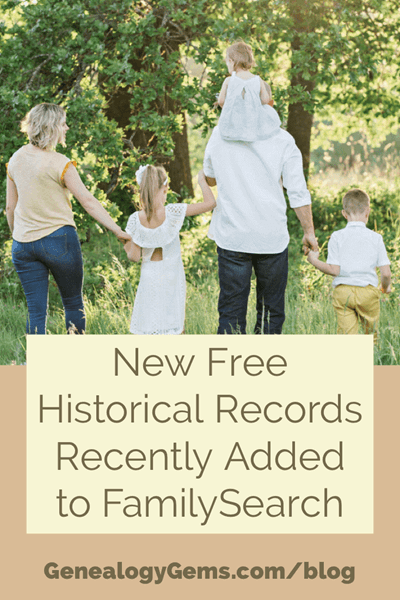
Brazil
Brazil, Rio de Janeiro, Civil Registration, 1829-2012
Indexed Records: 739,447
Digital Images: 0
Added indexed records to an existing collection
England
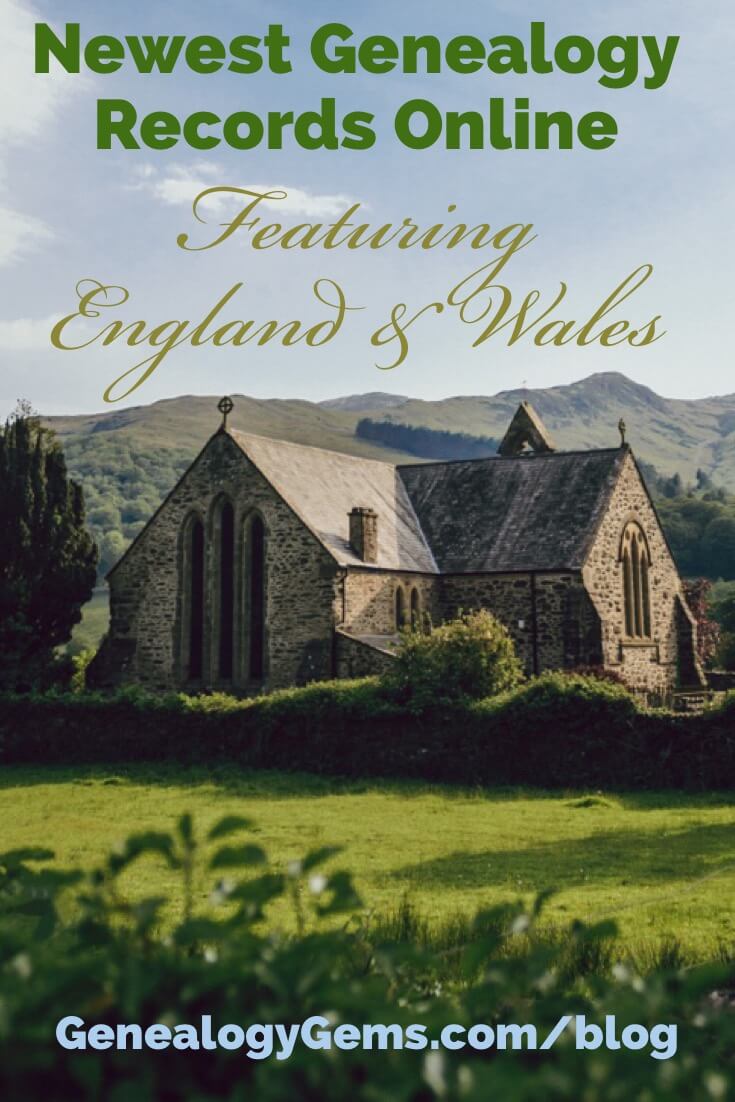
England and Wales, National Index of Wills and Administrations, 1858-1957
Indexed Records: 49,830
Digital Images: 0
Added indexed records to an existing collection
England, Essex Parish Registers, 1538-1997
Indexed Records: 159,775
Digital Images: 0
Added indexed records to an existing collection
France
France, Haute-Garonne, Toulouse, Church Records, 1539-1793
Indexed Records: 4,686
Digital Images: 0
Added indexed records to an existing collection
Ireland
Ireland Civil Registration, 1845-1913
Indexed Records: 2,673
Digital Images: 0
Added indexed records to an existing collection
Ireland, Thom’s Irish Who’s Who, 1923
Indexed Records: 2,356
Digital Images: 0
New indexed records collection
Netherlands
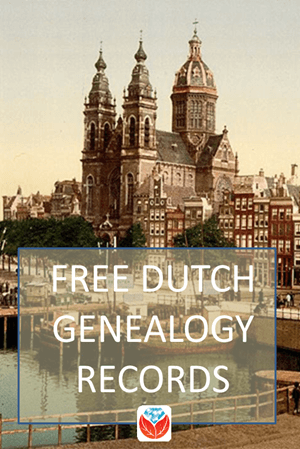
Netherlands, Archival Indexes, Vital Records
Indexed Records: 113,686
Digital Images: 0
Added indexed records to an existing collection
Netherlands, Archival Indexes, Vital Records
Indexed Records: 3,097
Digital Images: 0
Added indexed records to an existing collection
Puerto Rico
Puerto Rico, Catholic Church Records, 1645-1969
Indexed Records: 45,832
Digital Images: 0
Added indexed records to an existing collection
South Africa
South Africa, Transvaal, Civil Death, 1869-1954
Indexed Records: 97,711
Digital Images: 0
Added indexed records to an existing collection
United States
Alabama
Alabama, Jefferson County Circuit Court Papers, 1870-1916
Indexed Records: 41,089
Digital Images: 0
Added indexed records to an existing collection
Alaska
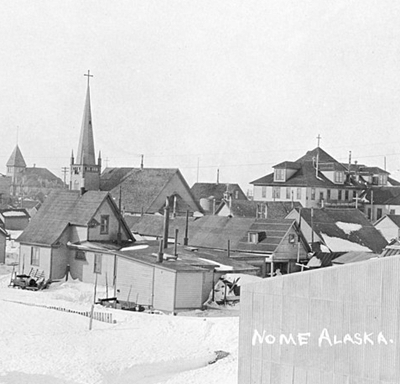
Alaska Naturalization Records, 1884-1991
Indexed Records: 4,822
Digital Images: 0
New indexed records collection
Arkansas
Arkansas, Sevier County, Record of Voters, 1868-1966
Indexed Records: 212,716
Digital Images: 0
New indexed records collection
California
California, County Marriages, 1850-1952
Indexed Records: 48,368
Digital Images: 0
Added indexed records to an existing collection
Florida
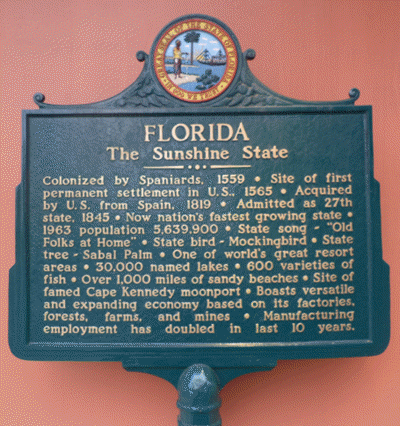
Florida, County Voter Registration Records, 1867-1905
Indexed Records: 25,453
Digital Images: 0
New indexed records collection
Georgia
Georgia Probate Records, 1742-1990
Indexed Records: 7
Digital Images: 0
Added indexed records to an existing collection
Hawaii
Hawaii, Death Records and Death Registers, 1841-1925
Indexed Records: 33,593
Digital Images: 0
Added indexed records to an existing collection
New Jersey
New Jersey, Church Records, 1675-1970
Indexed Records: 0
Digital Images: 413,237
Added images to an existing collection
North Carolina
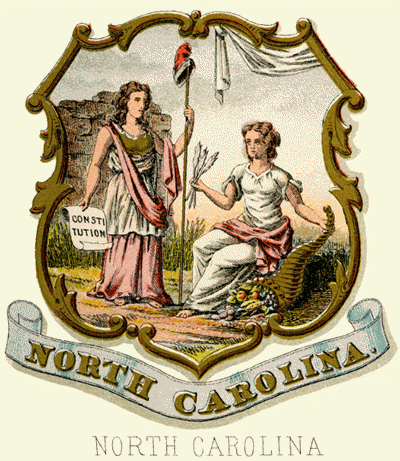
North Carolina, Department of Archives and History, Index to Vital Records, 1800-2000
Indexed Records: 2,509,434
Digital Images: 0
Added indexed records to an existing collection
North Carolina, Voter Registration Records, 1868-1898
Indexed Records: 15,059
Digital Images: 0
New indexed records collection
Pennsylvania
Pennsylvania, Register of Military Volunteers, 1861-1865
Indexed Records: 12,386
Digital Images: 0
New indexed records collection
Pennsylvania, Wayne County, Court of Common Pleas, Naturalization Records, 1799-1906
Indexed Records: 13,963
Digital Images: 0
New indexed records collection
United States
United States, Recruits for the Polish Army in France, 1917-1919
Indexed Records: 4,321
Digital Images: 0
Added indexed records to an existing collection
About FamilySearch
FamilySearch International is the largest genealogy organization in the world. FamilySearch is a nonprofit, volunteer-driven organization sponsored by The Church of Jesus Christ of Latter-day Saints. Millions of people use FamilySearch records, resources, and services to learn more about their family history. To help in this great pursuit, FamilySearch and its predecessors have been actively gathering, preserving, and sharing genealogical records worldwide for over 100 years. Patrons may access FamilySearch services and resources free online at FamilySearch.org or through over 5,000 family history centers in 129 countries, including the main Family History Library in Salt Lake City, Utah.
What Did You Find in the New Online Records?
We’ve got our fingers crossed that you are able to unearth some new genealogy gems from these new updates. If you do, please leave a comment and let us know, and then share this post with your friends.
by Lisa Cooke | Jan 9, 2017 | 01 What's New, DNA |
As genealogists, we spend our time trying to ferret out the real story in our family’s oral history, or at least from the records they left behind. Record research is critical, but now we have an amazing new tool…DNA matching.

Genealogists constantly check family stories against the information on records, searching for what sounds plausible and what doesn’t. Even when we have total agreement in our records, more information often comes along…like DNA testing. In fact, DNA matching may shed light on even more apparent discrepancies.
Family Lore vs. DNA Findings
I recently read an article in the Wall Street Journal about a reporter, Cameron McWhirter, who shared finding that kind of discrepancy between his family lore and his DNA. He even goes so far as to say, “I am descended, at least partially, from liars.” He makes the point, “many immigrants reinvented themselves when they arrived here (the United States).” This could be a nice way of saying they had a chance to invent a new legacy, not just re-invent it. His assessments were certainly interesting and worth reviewing. It helps us see how DNA testing can affect the way we look at our family stories and traditional research results.
McWhirter may be like some folks today who have never set foot inside a courthouse or scanned through microfilm, but instead relies heavily on internet research. Some of these modern genealogists never gave their family history a second thought until, like McWhirter, the death of parents started to inspire them to dig deeper. Due to the large volume of information online, the budding genealogist is “quickly pulled into the obsessive world of modern genealogical research.”

Example of an ethnicity report from Ancestry.com.
McWhirter’s personal story was that while his dad was proudly and solidly a self-proclaimed Scot, the records and DNA matching revealed his heritage was actually from Ireland and eastern Europe. McWhirter says that his “father hated Notre Dame, but judging by my results he could have been one-quarter to one-half Irish. He spoke dismissively of people from Eastern Europe, but part of his genetic code likely came from that region.”
McWhirter’s evaluation of his genetic report includes only his ethnicity results, which as you can hear, were meaningful to him in the way that flew in the face of his father’s prejudices and assertions of his own identity.
However, the ethnicity results fall short of the point of testing for most genealogists.
He has the opportunity to more powerfully transform his sense of family identity by taking a look at his match list. Here, he may see an actual living cousin who was also descended from his German great-grandmother, who maybe never mentioned that she was also Jewish.
The Real Goal: DNA Connections to Living Family
Connecting with other cousins who also have paper trails to our ancestors serves to provide further confidence that we have put all the pieces together and honored the right ancestor with a spot on our pedigree chart. We multiply our own research efforts by finding more people like us—literally—who are descended from the same people. As long as they are as diligent in their research as we are, we can make these connections that could finally bust through those genealogy brick walls and more.
At a recent conference, I met a fifth-cousin. Even with a connection that distant, it was exciting and it encouraged us to want to look again at our connecting ancestors. To me, that is the bigger picture and the real goal—when the paper trail comes together with the DNA results and turns into real live cousins.
The Next Step: Using Your DNA Results to Find Living Family
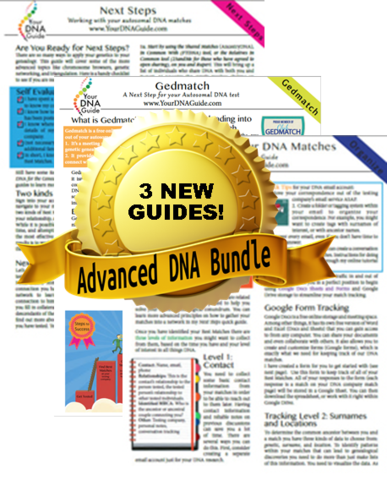 Maybe you are like Cameron McWhirter: you’ve taken a DNA test, been intrigued or disappointed by the ethnicity results, but haven’t fully explored your matches on your list. You may be seriously missing some opportunities! If that is you, I have written my new DNA quick guide just for you. It’s called “Next Steps: Working with Your Autosomal DNA Matches.” This guide will teach you how to leverage the power of known relatives who have been tested. You will get an intro to chromosome browsers and their role in the search process and access to a free bonus template for evaluating genealogical relationship of a match to the predicted genetic relationship. This guide also gives you a methodology for converting unknown relatives on your match list into known relatives.
Maybe you are like Cameron McWhirter: you’ve taken a DNA test, been intrigued or disappointed by the ethnicity results, but haven’t fully explored your matches on your list. You may be seriously missing some opportunities! If that is you, I have written my new DNA quick guide just for you. It’s called “Next Steps: Working with Your Autosomal DNA Matches.” This guide will teach you how to leverage the power of known relatives who have been tested. You will get an intro to chromosome browsers and their role in the search process and access to a free bonus template for evaluating genealogical relationship of a match to the predicted genetic relationship. This guide also gives you a methodology for converting unknown relatives on your match list into known relatives.
So check it out, either by itself or as part of my Advanced DNA bundle, which comes along with my new Gedmatch guide and a guide expressly for organizing your DNA matches.

 Ancestry.com recently announced an update to their privacy policy. Current and future AncestryDNA users now have the option to opt out of the DNA matching feature.
Ancestry.com recently announced an update to their privacy policy. Current and future AncestryDNA users now have the option to opt out of the DNA matching feature. What does this new opt-out option mean for genealogists? Hopefully, not much will change. Ancestry reports that overwhelmingly, people are opting in.
What does this new opt-out option mean for genealogists? Hopefully, not much will change. Ancestry reports that overwhelmingly, people are opting in.











